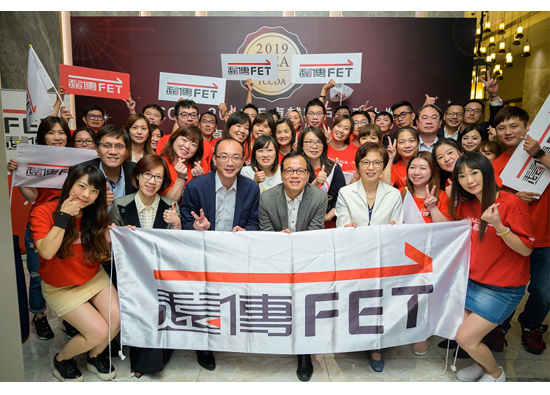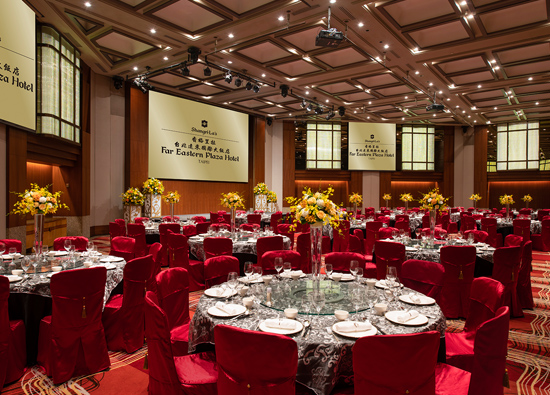12.2020 Leader's Remarks
The New Normal : the Impact on the Retail Industry
Far Eastern Group Chairman / Douglas Hsu

2020 is a turbulent year, each industry is dealing with grimmer challenges than ever, the unprecedented impact on the retail industry, and in particular the swift changes in consumer behaviors and dynamic operating environment caused by the pandemic. Yet, facing with these impacts and possible new developments, how should retailers adjust their resources and strategies to win over the upcoming new normal?
Turbulent World
As CEO of WalMart has indicated that “we see a bumpy road ahead” regarding the future economic prospect. The outbreak of COVID-19 pandemic has been developing rapidly since the end of 2019, and has now hit 40 million plus of global coronavirus cases and over one million deaths. To control the spread of this pandemic, each nation has been adopting lockdown and closing their borders, hitting most of the logistics operations, in particular the shutdown and the halt of production across the “world factories” in China, causing disruption in supply chains. Many enterprises shifted their production bases to minimize the loss from the disruption. Furthermore, the decreased flows in people due to border control have impacted most airlines, tourist operators, and retail industries. Lastly, international movements have cooled down due to boarder isolation, given the disruptive global growth momentum, investors’ and enterprises’ panic grew leading into turbulent financial market, U. S. stock fuse, crush of crude oil future prices, and etc. The most important sports event such as Tokyo Olympics is also forced to postpone to 2021.
Aside from the impact of the coronavirus, with the geopolitical conflict between the U.S. and China, this has negatively impacted the power of balance. In particular, the U. S. Presidential Election that draws global attention is closely tied with the Sino-American future developments. Moreover, the Anti-ELAB Movement in Hong Kong since last year, coupled with the passing of “Law of the People’s Republic of China on Safeguarding National Security in the Hong Kong Special Administrative Region” this year have resulted in unprecedented difficulties for Hong Kong’s economy. All these incidents have engraved inerasable marks on the turbulence of 2020.
Aside from the impact of the coronavirus, with the geopolitical conflict between the U.S. and China, this has negatively impacted the power of balance. In particular, the U. S. Presidential Election that draws global attention is closely tied with the Sino-American future developments. Moreover, the Anti-ELAB Movement in Hong Kong since last year, coupled with the passing of “Law of the People’s Republic of China on Safeguarding National Security in the Hong Kong Special Administrative Region” this year have resulted in unprecedented difficulties for Hong Kong’s economy. All these incidents have engraved inerasable marks on the turbulence of 2020.
The performance of Taiwan’s retail industry varies throughout 2020. Since the beginning of pandemic in the early 2020, consumers had concern about going out shopping, causing significant decline in all types of retailers, in particular the department stores; only e-commerce was able to sustain their sales momentum. Yet, after the pandemic is stabilized, added with triple stimulus vouchers taking effect to boost the economy, starting from July retail sales revenues have begun to uplift gradually.
Dealing with the most serious crisis since the “Great Depression” if widely testing, treatments, vaccine can be provided to people much faster, couple with additional economic stimulus policies, the 2021 economic performance is expected to improve significantly.
Coronavirus Impact on the Retail Industry
According to the English proverb of “There is nothing certain, but the uncertain,” this depicts the current environment vividly. Since the spread of coronavirus in early 2020, the retail industry underwent an unprecedented impact. Till end of August, 23 retailers have announced to be closed, among which were brand name apparels hitting hard the most; also four department stores declared bankruptcy. However, certain types of retailers outshine the rest in food and groceries, home repair, and liquor products, all have reported more than 10% growth as compared to the same period of last year, which could be attributed to the lockdown policy leading to the increase of consumer needs.
According to the English proverb of “There is nothing certain, but the uncertain,” this depicts the current environment vividly. Since the spread of coronavirus in early 2020, the retail industry underwent an unprecedented impact. Till end of August, 23 retailers have announced to be closed, among which were brand name apparels hitting hard the most; also four department stores declared bankruptcy. However, certain types of retailers outshine the rest in food and groceries, home repair, and liquor products, all have reported more than 10% growth as compared to the same period of last year, which could be attributed to the lockdown policy leading to the increase of consumer needs.
New Normal New Retail
 At the opening show of 2020 TITAS, domestic designers applied innovative, eco-friendly, and renewable textile materials to create many eye-catching apparels. These fabrics are R&D results of Taiwan’s best textile companies, which reminded us innovation and creativity of all industries are vital weapons in dealing with the new normal.
At the opening show of 2020 TITAS, domestic designers applied innovative, eco-friendly, and renewable textile materials to create many eye-catching apparels. These fabrics are R&D results of Taiwan’s best textile companies, which reminded us innovation and creativity of all industries are vital weapons in dealing with the new normal.
Under the impact of the pandemic, with lower income and relatively lower dispensable income, consumer attitude tends to be conservative in order to prepare for the future. Therefore, the home expenses will focus on daily necessity products or services. Originally selected products could be replaced due to disruptive supply chain or lack of supply. Furthermore, they will pay more attention to the safety and hygiene of their shopping environment, and the choice of clicks-and-mortar channels will continue to increase.
Facing with such new normal, how should retailers draw their strategies?
1.Rethink how to connect with consumers: Retailers should start to analyze data, learn what kind of merchandise or service can attract consumers, and re-establish relations with the consumers.
2.Integrate physical and virtual services: Under the trend of new normal, the offline and online relations have become more important than before. If fail to integrate both, brand operation will face major challenges. As physical retail channel is still a strong tool with customer engagement, digital environment can never compete with the value and experiences offered by physical stores. So, if retailers can integrate physical and digital services seamlessly, they can be optimized to enjoy prosperous developments.
3.Develop contactless shopping services: Under the pandemic, consumers care more about hygiene, contactless shopping may be the solution, which can decrease contacts with customers, coordinate price management of physical and online systems, lower the ratio of short supply and product damage, increase agility of event and market promotion, provide better shopping experience, offer safe shopping environment, let consumers have confidence to return to the stores, and at the same time adopt the advantage and efficiency of virtual channels.
4.Experience is a major factor of physical channels: As U. S. economists Joseph Pine II and James Gilmore stated that “If businesses can orchestrate events for their customers to attend and leave them with memorable experience, when customers are participating in the processes, the memory of the joyful experience will retain. If the experience is wonderful, exclusive, unable to copy, and not transferable, customers are willing to pay the premium for such experiences.” Physical stores are the best carrier for the consumer experience economy. In the future, all sales are for selling experiences!
Closing Remarks

Lastly, I will conclude today’s speech with the following three remarks--
Firstly, the digitization that we have been emphasizing during the past years has become more indispensable due to this pandemic, which is also an imperative strategy for retailers. U. S. hypermarket Target CEO Brian Cornell expressed: Within the next three years, Target will strive to promote digitization, and try our best to satisfy consumer needs with digital services.
Secondly, provide safe, hygiene, and trust worthy shopping environment is a joint expectation from all consumers after the pandemic, and also is the most important objective of physical stores. Only when consumers feel safe, they can shop with ease.
Thirdly, no matter online or offline, rich merchandise mix should be provided to consumers for convenient shopping. This is the ultimate objective of retailers.
Last but not least, let’s quote U. S. VADM James Stockdale’s “The Stockdale Paradox” as a footnote to mark this turbulent 2020, “You must retain faith that you will prevail in the end, regardless of the difficulties. And at the same time…you must confront the most brutal facts of your current reality, whatever they might be.” If maintain alert at all time, trust everyone will make breakthrough with action to win over the challenges caused by this pandemic.
(From Chairman Douglas Hsu’s speech given at Far Eastern Department Stores Vendors’ Party)#





















